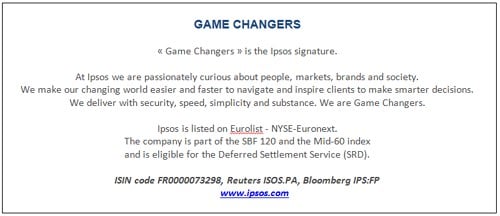Audi took gold in the passenger car sales survey (96.1% - 97.3%) as well as gold for the servicing experience (91.7% - 93.8%), with Volkswagen taking gold for sales and silver for servicing.
Volkswagen, along with Isuzu, took gold for sales (93.1% - 95.5%) in the light commercial vehicle segment and these two LCV brands, together with Nissan and Toyota took gold for servicing (86.5% - 91%).
Last year Audi took gold for both sales and service in the passenger car category, while Volkswagen took gold for sales and silver for service in the PC category. (Volkswagen earned gold for both sales and service in the 2013 LCV survey).
BMW, Chevrolet, Nissan, Opel and Toyota all took silver for the passenger car sales experience this time around, with Ford, Lexus, Mercedes-Benz, Renault and Volvo collecting bronze.
Chevrolet, Lexus and Nissan joined Volkswagen in the silver category for passenger car servicing, with BMW, Honda, Mercedes-Benz and Toyota all in the bronze category.
Four brands qualified for silver in the LCV purchasing experience. They were: Chevrolet, Ford, Nissan and Toyota. As previously mentioned, gold for LCV servicing was awarded to Isuzu, Nissan, Toyota and Volkswagen, while Ford and Chevrolet collected silver.
Mazda was excluded from the rankings from January - December 2014 due to the ongoing setup of the revised dealer network following Mazda separating from Ford.
"The local vehicle manufacturers and importers can be very proud of the latest Ipsos study results as a tribute to dedication to quality at all levels and extensive quality improvement programmes and intensive staff training," added Patrick Busschau, the Ipsos Automotive Business Unit Director.
In addition to the ongoing research into the sales and after-sales service experiences, on which these Quality Awards are based, Ipsos has also conducted a number of rigorous and robust customer understanding research investigations in the automotive market over the last 12 months, including quantitative usage and attitude measurements, as well as qualitative "needs" investigations into the customer journey. This research yielded a very insightful and powerful understanding of the South African automotive consumer, with a unique perspective into the mind-share and voice of the customer.
Busschau continued further that "despite consistently strong results over the last few years there are still opportunities for improvement, and to their credit many of the brands are constantly looking at ways to deliver a better ownership experience. We know that the automotive market is constantly evolving and that customer expectations have changed." Based on the research conducted, it has been uncovered that one of the typical characteristics of the automotive retail environment is a lower than average set of expectations from customers in this space, borne on the insight that customers often don't trust or necessarily expect a very high level of service from the industry due to a number of factors. Some of these factors are real, some legacy and some imagined. But as a result it can be a little bit easier and simpler to satisfy and even delight a customer in the automotive market, than a customer in the financial services or telecoms environments for instance, because their expectations are different.
Ipsos also believes that South African consumer traits play a part. Busschau explains by saying, "South African consumers can be a bit more apathetic, indifferent and forgiving than our counterparts in the US and Europe, but then we have a tendency to vote with our feet, which can catch retailers and businesses by surprise. When it comes to engaging with a retailer, especially about problems or complaints, there is often a sense of indifference or even helplessness, be this real or imagined. As a result, too often we see customers stating that they are satisfied and committed, but when it comes to market behaviour the customer may decide to purchase from another brand as this is often easier than risking the stress and frustration of trying to resolve issues. This tendency to defect, coupled with a growing market and a very wide repertoire of choices, means we are seeing attitudinal brand commitment in many sectors, including automotive, dropping. Brands and retailers are increasingly being expected to involve themselves with the customer through individualised customer engagement. For many retail businesses this is a huge challenge, but this would be the differentiator: understanding how to engage more effectively and proactively with customers in an appropriate way that drives memorable and positive experiences"
